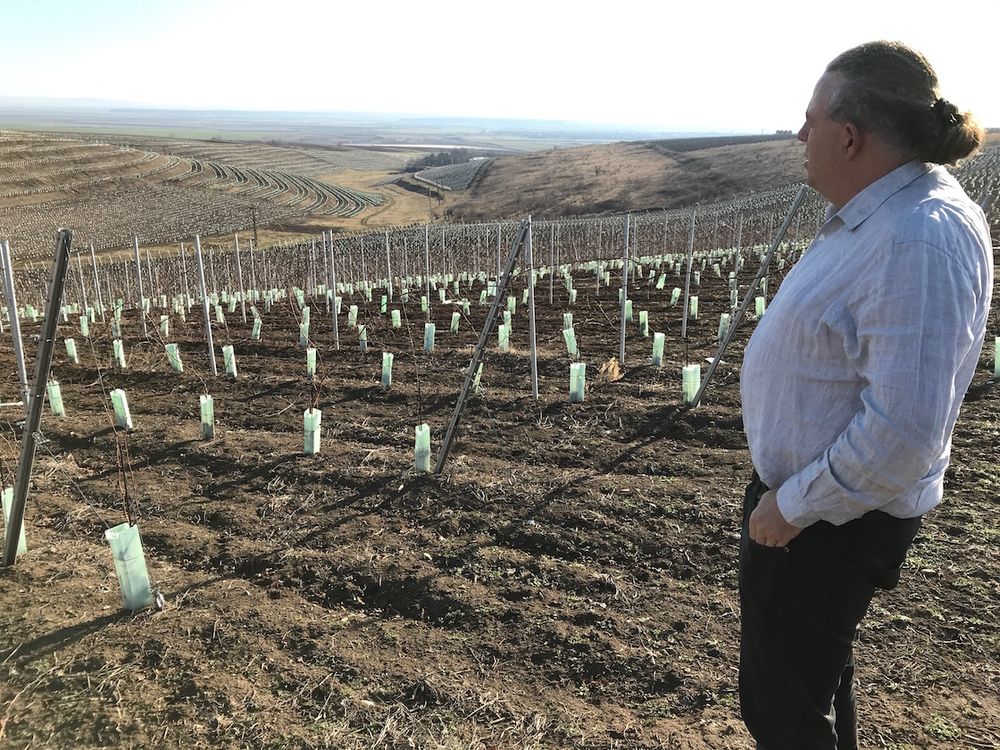Founded in 1998 by Bristol-born Philip Cox and his wife Elvira, Cramele Recas is currently Romania’s largest exporter of wine and the biggest seller of premium wine in the country. The Cramele Recas range is global, producing 65 different wines under 247 different labels for over 25 international markets.
So the dust has settled a little on Brexit and the UK’s departure from the EU single market and customs union that happened on 31 December, 2020. Nobody is in any doubt that it will be a profound and long-term change, but what effects has it had so far for EU wine suppliers of the UK market?

“The UK really is the world’s hardest market to sell to right now. The situation is just as bad – actually worse – for non-EU suppliers too,” writes Cox.
Well it may be a little too early to tell for sure, due to the last minute and rushed nature of the deal and the fact that neither the UK or the EU side has been very forthcoming with information and guidance for companies on what we are supposed to do. To be honest it’s very clear that our industry was one of the pawns in the negotiation and that profound changes have been made that affect us deeply but with absolutely no consultation with the industry, and a total lack of respect and understanding towards the business as a whole.
Another thing which is clear is that the UK has gone for a hard-core bureaucratic approach – asking for many things that no other non-EU country requires for wine imports. Items 3, 5 & 7 on my list below literally do not exist in any other major market, and if you add all the additional costs and time wasted on all the new requirements below, to the UK’s world leading duty levels, and the very competitive nature of the market itself with powerful chains that dictate what they want from suppliers it is really the world’s hardest market to sell to right now. The situation is just as bad – actually worse – for non-EU suppliers too.
Things are however moving towards a conclusion and many changes have now become evident, so here is a list of what we know so far. Starting with more banal, simple things and going onwards to more complex and difficult:
1. Fumigated pallets.
The UK requires ISPM 15 fumigated pallets from 1 Jan, which are harder to get hold of and more expensive.
2. Preferential origin.
From 1 Jan the UK requires all EU suppliers of wine to prove preferential origin of the goods (i.e. that they and the packaging materials are from the EU). For lower value shipments there is a simpler declaration, but for the vast majority of commercial shipments, those of a value over €6000, registration on the EU’s register of exporters (REX) is required. This is not as simple as it says on various DEFRA and EU sites, it took me about 2 weeks and a lot of admin – putting together certificates and declaration from 30 grape suppliers and 10 dry goods suppliers as to the origin of all our inputs.
3. More detailed invoices.
UK customs are requiring all invoices now contain more information than normal, Incoterms, customs codes, and statements of preferential origin, EORI numbers etc.
4. Importer labeling from Sept 2022.
Each and every wine label will have to have the importer address on it. As many companies have a wide range of labels and importers, this work needs to be started sooner rather than later as the labels move through the supply chain much slower than the politicians imagine. No longer can we sell one brand to multiple importers in the UK with the same label, everything now has to be bespoke so there are lots of inventory issues.
5. Long term supplier certificate.
This one, frankly, seems pointless to me – it’s just a declaration for each importer with the 10-digit Taric customs codes for each one – it’s just a repeat of information which is already on the customs declaration and commercial invoice really. But apparently its used in the UK for VAT issues so it’s important to do it.
6. Export and import declarations.
These are not in themselves that difficult to do (if you use a customs clearance agent to do them, doing them yourself is pretty hardcore), but they are cumbersome and expensive at about €75 on export and another €75 for your customer in the UK. In our case where we use the closest local customs office 25 km from the winery and who insist on physically checking every truck – we have to send the truck physically to the customs office by 12 noon each day, which means we can only load for the UK basically half a day.
7. UK wine import certificates.
We were all glad to hear about the demise of the threatened Vi1 documents, but…..! These certificates will come into use for imports from 1 June 2021, but for suppliers using EU logistics hubs for UK supermarkets it’s recommendable to already have the certificates from mid-April. One certificate is required for every wine on every import declaration/invoice. The certificates are completed by the suppliers but supervised by the local wine authorities in each EU country. They are not that hard to complete – with 8 pieces of information, details of the suppliers and client, quantity of each wine, colour, alcohol, customs code etc. But as they are for every delivery for every wine that means there will be lots of them, especially for the smaller importers and the fine wine trade with shipments of multiple products in small quantities.
Equally, for supermarket suppliers using EU distribution hubs who split shipments from EU suppliers and send to multiple UK distribution centres, the certificates will need to be done for each shipment crossing the UK border thus multiplying the number of them from a few certificates per truck to easily 15-20 certificates per truck leaving the winery.
In my opinion these certificates are one of the most disappointing, costly and annoying of all the changes because in our case we will have to have a person whose sole job is filling in these certificates. It’s not clear to me what the goal was for these certificates but they do not prove anything about the quality or origin of the wine and all the information on them is duplicated from other documents that are already used on every shipment (customs declaration and invoice). I personally want to fight to get them scraped they are unfit for any purpose.
8. Wine going to Northern Ireland.
Wine going to Northern Ireland has a different regime than the rest of the UK in a couple of ways: A) if the wine was already imported in the UK and is then sent on to NI without any changes (filtration, blending, bubbles etc) it will be considered a 3rdcountry product and will have to pay the full tariff on arrival in NI. B) Special requirements for labeling are needed with a text on the label saying not for sale outside Northern Ireland. This is a pain for UK distributors using the UK as a hub (and indeed apply to all business re-exporting goods to anywhere in the EU). The money can be re-claimed but the procedure is not yet known and will presumably take a long time, so in practical terms all goods for NI will have to go direct from EU – probably via Eire.

Cox is thankful that after the Brexit referendum he switched his 70% reliance on the UK market to build up business in countries all over the world
And then there’s transport and logistics post-Brexit
So those are some of the more clear, tangible things that have happened so far. Beyond that I can say for sure that there are huge transport problems, the vast majority of EU transporters no longer want to go to the UK so there are rising prices and large delays in finding transport. Online sales between the UK and EU and vice versa are all but stopped both by the high cost of customs fees on both ends compared to the value of the goods, and also by the fact that the UK has changed its VAT rules and requires online EU vendors to collect UK VAT.
Transport and logistics companies are to some extent profiting from the situation and it’s my experience that they are rather trying to overplay the complications to their UK customers as a way as gaining higher prices and more work on the customs-clearance side of things.
Many large customers in the UK are, to a large extent, trying to outsource all the logistics and customs work to logistics companies and also trying to get their suppliers to do a lot of the work.
It’s a rough time where suppliers need to be very careful what they agree to do and pay for.
And it’s equally rough for importers who now have more admin., more responsibility, more costs and tighter margins.!
I am sure everyone will settle down with the new requirements eventually but it will for sure produce a significant shift in the UK wine trade and make a big dent in consumer choice, raise price levels and make life very difficult, perhaps impossible, for all but the strongest companies.









































